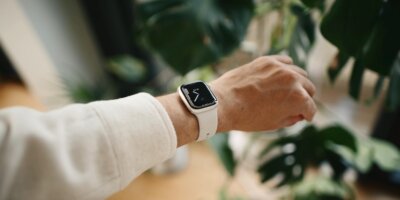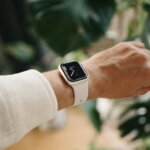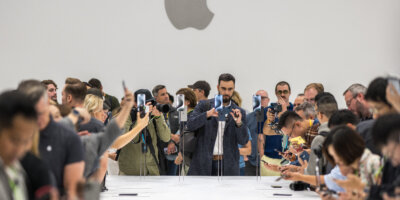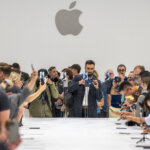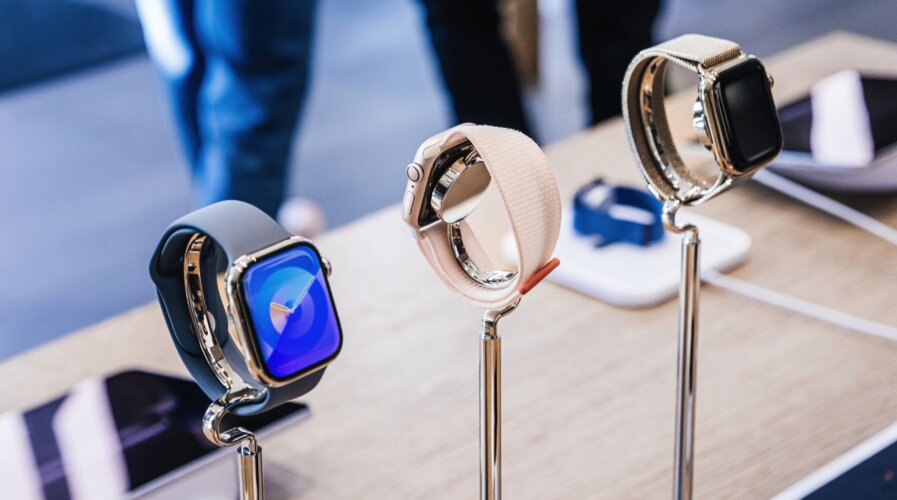
Sale revival for Apple Watch models after ban overturn. (Source – Shutterstock).
Apple Watch models back on sale – temporarily – after ban reversal
- Apple’s latest Apple Watch models, including Series 9 and Ultra 2, resume sales in the US from December 27, following a temporary lift of the ITC ban.
- Apple tackles patent disputes with legal appeals and technical redesigns, seeking to overturn the ITC’s import ban on its smartwatch models.
- Apple navigates complex retail challenges amid the smartwatch ban, offering limited store guidance but continuing sales through other US retailers.
Recently, Apple Inc. announced its intention to resume selling its latest Apple Watch models in US stores starting December 27, following a halt in sales due to a White House decision against reversing a ban. The turnaround results from a favorable court ruling in a patent dispute, offering a brief respite for Apple’s significant US$17 billion business sector.
The development comes after the White House decided to forego emergency action that would have maintained the availability of Apple’s top-selling smartwatch.
The Biden administration had until the conclusion of Christmas Day to overrule a decision by the US International Trade Commission (ITC) that barred the import of newer Apple Watch models, such as the Series 9 and Ultra 2, due to patent infringement issues. Contrary to some predictions, the administration chose not to intervene.
This was confirmed in a statement by the office of US Trade Representative Katherine Tai on December 26.
Apple’s initial response to the ban
Apple withdrew the affected Watch models from its online store. On December 26, Apple Stores reopened without the latest premium models in stock. The more budget-friendly Apple Watch SE was still available, as it wasn’t included in the ban. But the prohibition did affect the Apple Watch Series 6 and later models, including all Apple Watch Ultra models.
Apple responded to the White House’s inaction by filing an appeal with the Federal Circuit court against the ITC ruling.
On December 26, Apple indicated it was exploring both legal and technical routes to resume imports of its most advanced watch models, which included submitting a redesign of the Series 9 and Ultra 2 models for US Customs review.
In a motion for an emergency appeal filed the same day, Apple sought a temporary halt to the ban until US Customs could review its redesign, anticipated by January 12, 2024. The company argued that maintaining the ban during the appeal could cause significant harm.
Temporary relief and online sales resumption of specific Apple Watch models
It has recently been disclosed that the Apple Watch Series 9 and Ultra 2 will return to online sales starting at noon on December 28. This follows an ITC ban on importing and selling these products through Apple’s official channels, after a ruling in favor of Masimo Corp., a medical device manufacturer, in a patent infringement case. On December 27, an appellate court in Washington granted a temporary stay on the ITC’s decision while Apple proceeded with its appeal.
An Apple spokesperson said the company’s teams have been committed to developing technology providing leading health, wellness, and safety features. They expressed satisfaction that the US Court of Appeals for the Federal Circuit has paused the exclusion order while considering Apple’s request to suspend it pending a comprehensive appeal.
The watches are scheduled to reappear in some of Apple’s approximately 270 retail locations across the country starting December 27, with wider availability expected by December 30, per the company.
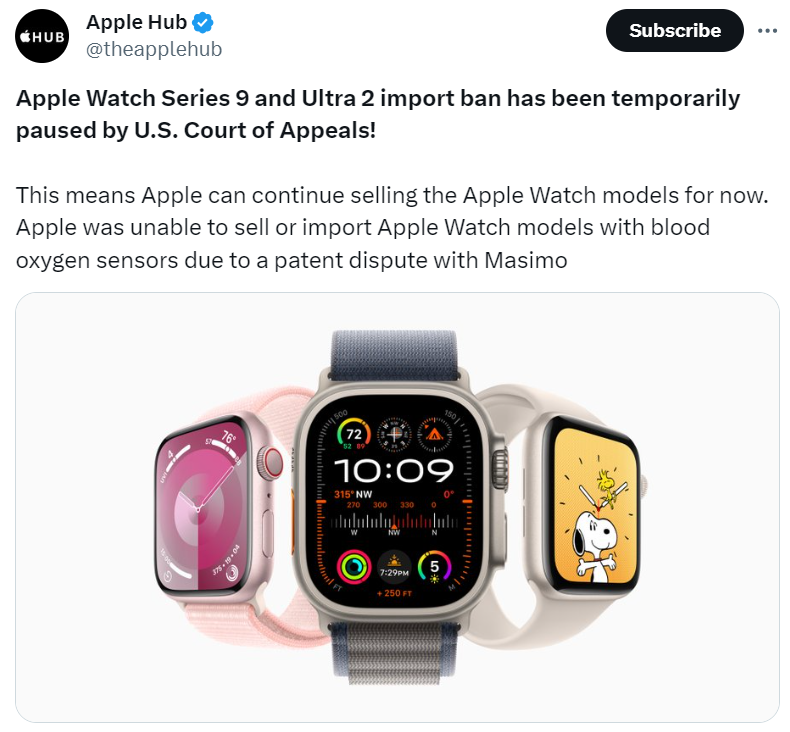
The US Court of Appeals has temporarily suspended the import ban on Apple Watch Series 9 and Ultra 2. (Source – X).
Apple was compelled to stop sales of one of its flagship products after the ITC found the company in breach of two Masimo patents related to blood-oxygen saturation measurement. Apple withdrew the watches from its website on December 21 and from retail stores on Christmas Eve.
The ITC announced the ban on sales and imports in October, giving the White House 60 days for review and possible veto. On December 26, US Trade Representative Katherine Tai announced she would not step in, and the White House refrained from vetoing the ban. After all, patent breach is patent breach, even if you’re a multi-billion dollar tech giant.
Apple has also created a software update for the Apple Watch, which is believed to address the issue. The company has submitted the design of this update to the US Customs agency, with a decision on its approval expected by January 12, 2024.
The appellate court in Washington has given the ITC until January 10, 2024, to respond to Apple’s petition for an extended stay during the company’s full appeal process. A spokesperson for Masimo, based in Irvine, California, chose not to comment on the recent court ruling. After the court lifted the sales ban provisionally, Masimo’s shares fell 4.6% to US$115.11 in New York, while Apple’s stock remained relatively stable.
In a December 26 court filing, the ITC argued against the interim stay of its order, claiming that Apple wouldn’t experience “irreparable harm” during its appeal as some watch models were still available for sale.
Impact of the ban on retail strategy and customer experience
After announcing plans to resume selling its latest Apple Watch models in US stores from December 27, following a favorable court ruling, Apple is also navigating the complexities of the sales pause of the Apple Watch 9 and Ultra 2 due to the patent dispute. While the sales of these models will continue at other US retailers, Apple Stores are cautious in their communication with customers.
According to Bloomberg, Apple employees have been instructed not to direct shoppers to other retailers like Best Buy, Target, or Walmart, where the smartwatches will remain available while supplies last. Apple continued selling the two models online until December 21, and in its physical stores until December 24.
This cautious stance likely stems from Apple’s efforts to safeguard itself legally, but it presents challenges for consumers, especially during the holiday season. Shoppers visiting Apple Stores may find themselves without guidance on where else to pick up the Apple Watch Series 9 or Ultra 2.
While adhering to company policy amid the ongoing legal issues, store staff are reportedly instructed to avoid providing information about where these models can be purchased (Apple having clearly never watched Miracle On 34th Street or learned its lessons of co-operative commerce). This situation underscores the broader impact of the patent dispute on Apple’s retail strategy and customer experience.
For customers seeking these specific models with the patience of a mayfly, buying an Apple Watch abroad remains an option, although it’s important to note that certain cellular models may not be compatible with US carrier configurations due to regional differences.
The ITC specified that its remedial orders target only Apple Watch products, including the light-based pulse oximetry feature used to measure blood oxygen levels.
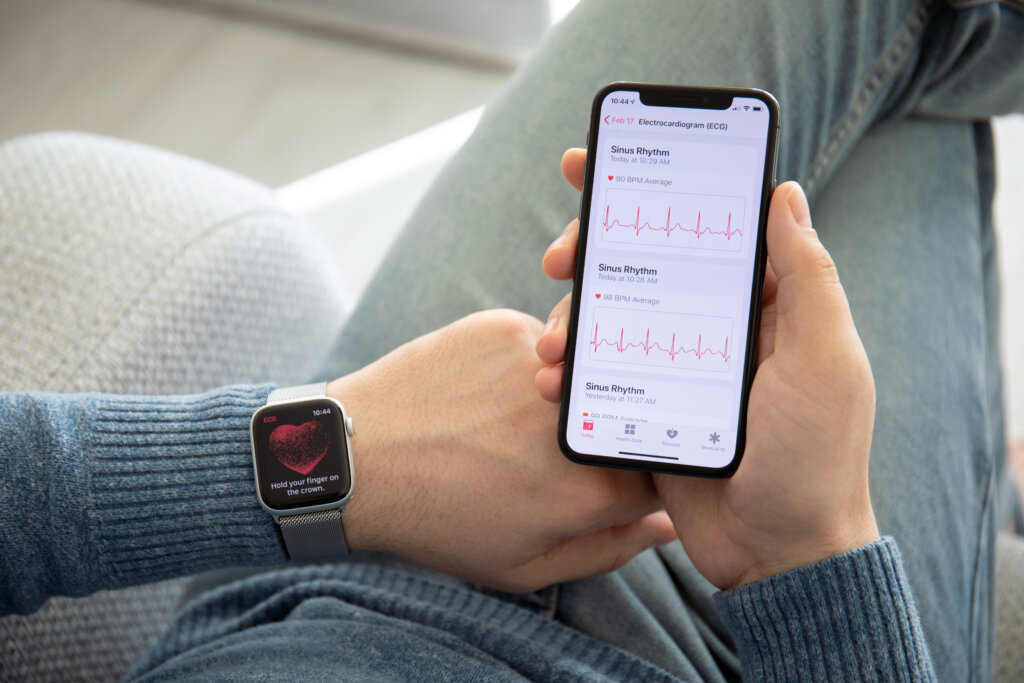
The ITC’s orders focus solely on Apple Watches with the pulse oximetry feature. (Source – Shutterstock).
Masimo is also seeking to be involved in the appeal case. In a recent court submission, the company argued that Apple’s urgent request for a temporary stay is unwarranted as there is no immediate emergency.
Masimo accused Apple of presenting misleading information about the current situation to the court, stating that Apple failed to disclose that it had already stopped selling the Apple Watches subject to the ITC’s orders.
Apple maintains that the ITC’s decision is erroneous and is committed to reintroducing the affected watches to the US market. This situation has caused inconvenience for Apple Watch Series 6, 7, and 8 owners, all of which feature the blood-oxygen sensor. Notably, these models were not eligible for hardware repairs under warranty while the ban remained in effect.
READ MORE
- 3 Steps to Successfully Automate Copilot for Microsoft 365 Implementation
- Trustworthy AI – the Promise of Enterprise-Friendly Generative Machine Learning with Dell and NVIDIA
- Strategies for Democratizing GenAI
- The criticality of endpoint management in cybersecurity and operations
- Ethical AI: The renewed importance of safeguarding data and customer privacy in Generative AI applications

